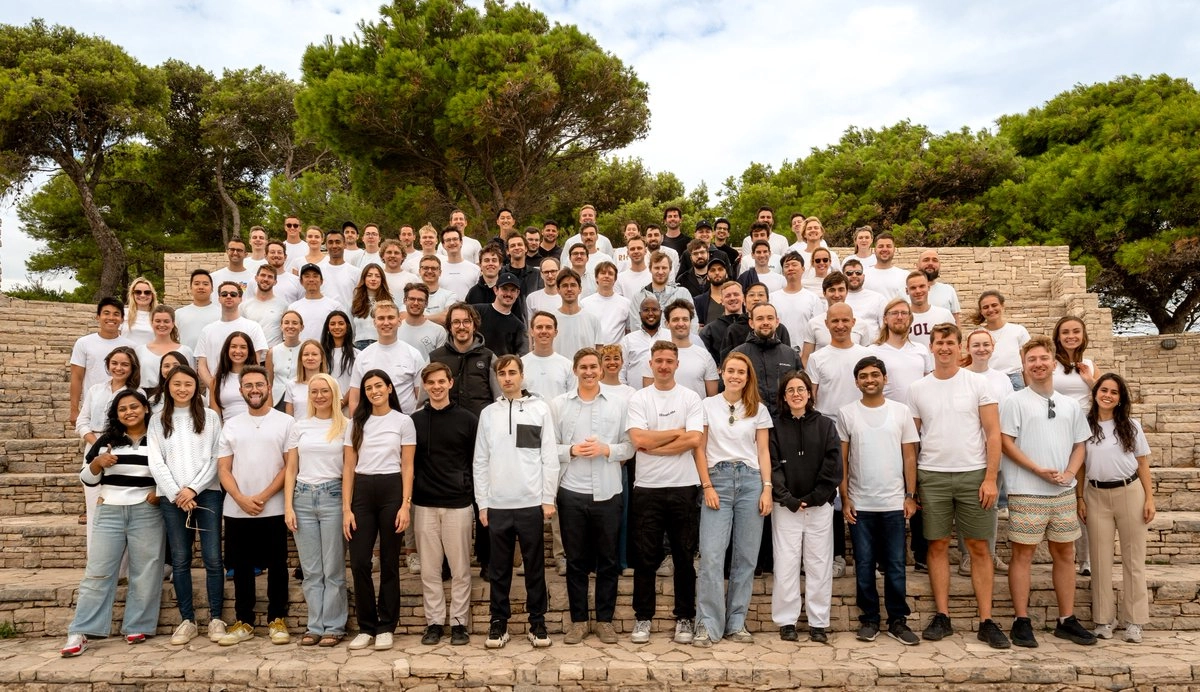In June our team produced a comprehensive guide to top international cybersecurity teams operating in Poland. The story highlighted the importance of this sector and the rise of cyber threats affecting Poland. In today’s story the focus is different. Instead we are focusing on the outlook for cybersecurity specialists in Poland in 2025.
According to LinkedIn there are 21,000 people who list the word ‘cybersecurity’ in their profiles in Poland. How many people work in this sector is not clear though. What is clear is that there are not enough people to fill the number of jobs. This is a fact that has been an ongoing challenge since 2023.
When the first SOC (Security Operations Centre) was opened in Poland there was no natural need to strengthen the local cybersecurity sector. The first SOC was opened to focus on cyber threats affecting companies not based in Poland. It also coincided with some historic hacks that took place in Western Europe and the U.S. Uber, FedEx, Equifax, EasyJet, PepsiCo, Altaba, and the NHS in the UK are just some of the companies that suffered major breaches in the early 2000s. As some of these firms already had centres in Poland, why not add a cybersecurity team? That was how most SOCs came about.
Today, the Polish government is notching up its’ own cyber capabilities. Exacerbated by the war in Ukraine, the need for cybersecurity specialists in Poland has now gone into hyperdrive.
What Specific Cybersecurity Specialists Does the Polish Market Need?
Architects, Analysts, Engineers, Officers, there is a wide variety of specialists that are needed by companies in Poland today. However, if you have a quick glance at pracuj.pl, there doesn’t seem to be as much demand as one would think. There are less than 40 roles advertised today.
Glassdoor has a much bigger number of jobs advertised. Even LinkedIn is advertising more roles than pracuj.pl. Glassdoor has 312 roles listed, whilst LinkedIn has 141. Of the roles listed on these sites the ones that stand out are cybersecurity officers, analysts, engineers, and a few architects. There is also demand for penetration testers, professionals who have experience with data, and people who understand compliance.
The most problematic part of the market is one simple issue. Many cybersecurity specialists in Poland don’t actively participate in addressing a breach or a hack. These specialists will analyze breaches occurring on the market and suggest solutions for their own companies to address these. Not a lot of people will know this.
On the other hand, working in the Polish private sector can be more hands-on. It might pay less, but specialists will be more exposed to the threats. There is a little bit of a challenge here for anyone new looking into the space.
What Events are Taking Place in Poland in 2025 that Cybersecurity Specialists should know about?
Once upon a time the leading cybersecurity event in Poland was HackYeah. The event takes place around September each year, in Krakow, and still has a substantial chunk of content focused on cybersecurity.
Other events worth checking are:


What about Salaries for Cybersecurity Specialists in Poland in 2025?
In 2024 there was a salary survey from Hays like each year. However, differently to previous years, Hays, the leading recruitment agency, also prepared a salary survey specific to IT Contracting. In the normal survey where only perm salaries are given, there is only one position that can be considered related to cybersecurity. This is the role of Security Manager, which Hays believe can pay between 27,000 and 40,000 PLN/month.
The Hays IT Contracting Salary Survey is far more detailed. According to Hays, “IT security is and will remain a top priority, with experts in this field forming key teams within organizations.”
There were further useful insights in the report which we can share with our readers.
“Cybersecurity is a very dynamic field, requiring constant adaptation to new challenges. The provision of cloud security, the use of AI in organizations and the move to a Zero Trust security model are all driving up demand for expert skills. It comes as no surprise that the rates in this field went up more than 10% and the role of a Cybersecurity Engineer is one of the highest paid positions in the entire guide [salary survey].”
If you want to know more then according to the survey a senior Cybersecurity Engineer in Poland can demand up to 240 PLN / hour today.
With inflation set to continue to remain nearer to 5% in Poland in 2025, expect these rates to continue to grow.
Trends to Consider for Cybersecurity Specialists in 2025
There are three other important things to consider for cybersecurity specialists. These points have been confused slightly by the return of Trump to the White House and a potential peace-deal with Russia in 2025. However, the demand for cybersecurity specialists in Poland should still continue to grow either way as threats will almost certainly continue to grow in sophistication and in number.
One thing to consider is how Post-quantum cryptography (PQC) is a defense against potential cyberattacks from quantum computers. It’s also known as quantum-resistant cryptography. Importantly, the UN has announced that 2025 is the International Year of Quantum Science and Technology (IYQ). Banks in countries like Singapore are already ramping up their efforts to address this area of concern.
While quantum computing has the potential to drive ground-breaking advancements, it also presents a significant cybersecurity risk. Quantum computers could theoretically break widely-used encryption algorithms, posing a serious threat to data security. By 2025, cybersecurity professionals will increasingly focus on “quantum-safe” encryption methods to safeguard data from potential future quantum attacks.
Then there is the recent NIS2 Directive. The Directive is the EU-wide legislation on cybersecurity. It provides legal measures to boost the overall level of cybersecurity in the EU.
Finally there is the Zero Trust Model that was mentioned in the Hays survey. The Zero Trust model, based on the concept of “never trust, always verify,” will become an industry standard by 2025. Organisations are moving away from traditional perimeter-based security, which is proving increasingly inadequate in defending against modern cyber threats. With Zero Trust, users and devices must continuously authenticate to access data and systems. This shift is critical as remote work remains the norm and brings an influx of personal devices into corporate networks.
Does your recruitment partner monitor the market that affects your business? Do you want to talk to the specialists at Verita HR to find out more?
Verita HR offers services including RPO | Permanent Recruitment | Outsourcing | Media Services
If you are looking for a role in Cybersecurity, then click here.
#recruitment #Poland #cybersecurity #salaries #specialists #postquantumcryptography #zerotrust #events




![W 2026 r. Polacy chcą sobie dorobić [badanie WPD: Wskaźnik Pracy Dorywczej]](https://g.infor.pl/p/_files/38989000/pieniadze-kalkulator-38988734.jpg)


